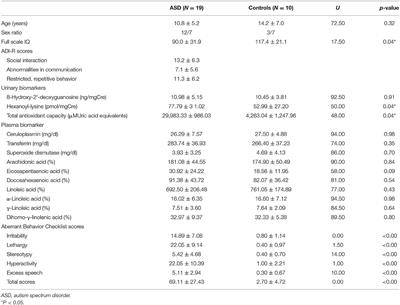EDITORIAL
Published on 07 Apr 2022
Editorial: Antioxidants in Autism Spectrum Disorders
doi 10.3389/fpsyt.2022.889865
- 1,848 views
- 3 citations
8,286
Total downloads
37k
Total views and downloads
You will be redirected to our submission process.
EDITORIAL
Published on 07 Apr 2022
ORIGINAL RESEARCH
Published on 03 Mar 2022

ORIGINAL RESEARCH
Published on 17 Feb 2022

ORIGINAL RESEARCH
Published on 30 Sep 2021

ORIGINAL RESEARCH
Published on 03 Sep 2021

MINI REVIEW
Published on 28 Jun 2021

